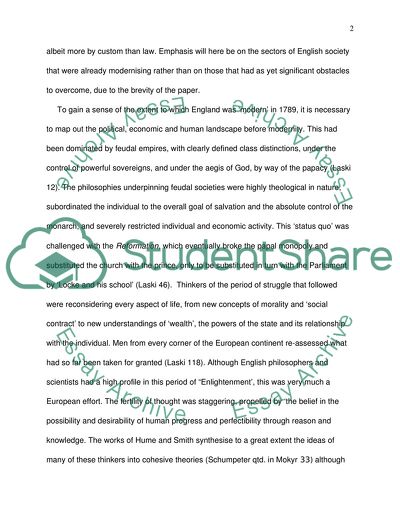Cite this document
(The Beginning of the Modern Era in England Case Study - 1, n.d.)
The Beginning of the Modern Era in England Case Study - 1. https://studentshare.org/history/1749411-history-was-england-already-modern-by-1789
The Beginning of the Modern Era in England Case Study - 1. https://studentshare.org/history/1749411-history-was-england-already-modern-by-1789
(The Beginning of the Modern Era in England Case Study - 1)
The Beginning of the Modern Era in England Case Study - 1. https://studentshare.org/history/1749411-history-was-england-already-modern-by-1789.
The Beginning of the Modern Era in England Case Study - 1. https://studentshare.org/history/1749411-history-was-england-already-modern-by-1789.
“The Beginning of the Modern Era in England Case Study - 1”. https://studentshare.org/history/1749411-history-was-england-already-modern-by-1789.


